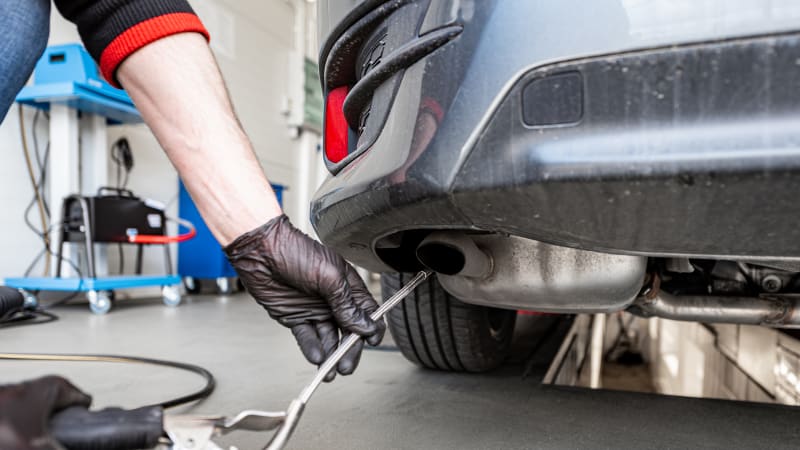WASHINGTON — The National Highway Traffic Safety Administration (NHTSA) said Wednesday it may impose higher penalties for automakers failing to meet fuel efficiency requirements in recent years, a decision that could cost the industry hundreds of millions of dollars or more.
President Donald Trump’s administration in its final days in January delayed a 2016 regulation that more than doubled penalties for automakers failing to meet Corporate Average Fuel Economy (CAFE) requirements.
Automakers protested that 2016 hike, warning it could boost industry costs by at least $1 billion annually. The hike could cost Chrysler parent Stellantis, for instance, hundreds of millions of dollars, while boosting the value of credits sold by Tesla.
Under President Barack Obama, the higher penalties were set to start with the 2019 model year, but the Trump administration – which first tried to suspend the hike – agreed following a court decision to set the effective date as the 2022 model year.
NHTSA said it is giving the public 30 days to comment on whether it should reinstate the 2016 rule that would impose higher penalties effective with the 2019 model year, but said it had not yet reached a final determination.
Congress in 2015 ordered federal agencies to adjust civil penalties to account for inflation. In response, NHTSA issued rules to raise fines to $14 from $5.50 for every 0.1 mile per gallon new cars and trucks consume in excess of required standards.
A trade group representing major U.S. and foreign automakers said Wednesday it had urged NHTSA not to retroactively apply higher penalties to model years already produced or designed, “since doing so would produce no environmental or fuel economy benefit.”
A U.S. appeals court in August 2020 overturned the Trump administration’s 2019 decision to suspend the 2016 regulation.
In March, Tesla urged a U.S. appeals court to reinstate the higher fuel economy penalties and said the Biden administration ignored the ongoing impact of the Trump rule on the credit-trading market.
Tesla, whose electric cars produce zero emissions, sells credits to other automakers to reduce their burden of complying with regulations and argued the Trump rule change makes those credits less valuable.
Fiat Chrysler Automobiles, part of Stellantis NV, paid a total of nearly $150 million for failing to meet 2016 and 2017 requirements.
NHTSA said its analysis showed reinstating the earlier hike could boost penalties for the 2019 model year alone by $178.5 million, a figure that does not include the impact on credit trading.
Stellantis said earlier this month in a securities filing costs related to potential higher CAFE penalties could be about 521 million euros ($609 million).
Earlier this month, NHTSA proposed hiking CAFE requirements by 8% annually for 2024 through 2026, reversing a Trump-era regulation that rolled back higher requirements starting in the 2021 model year.
Related Video:





